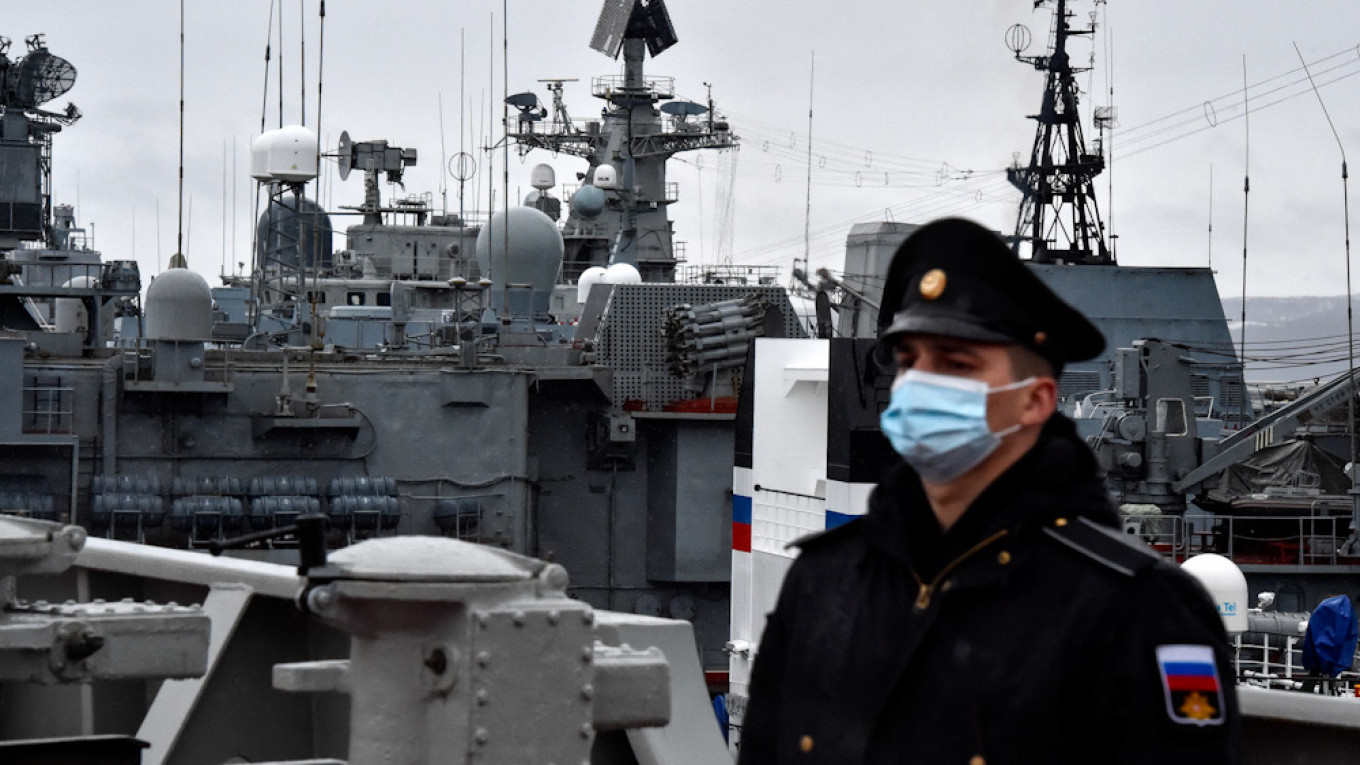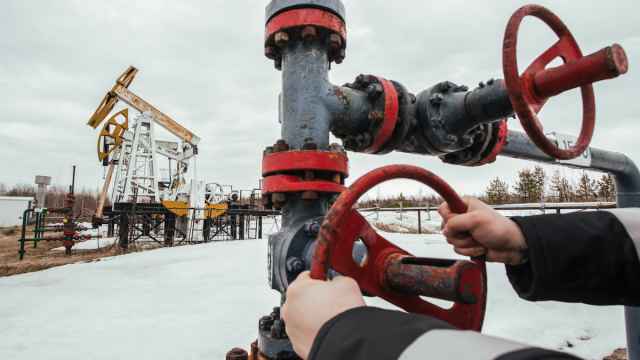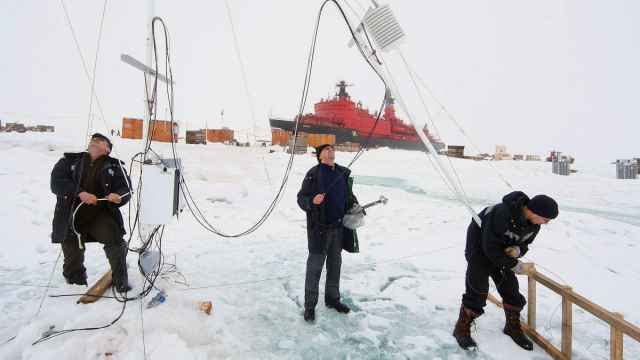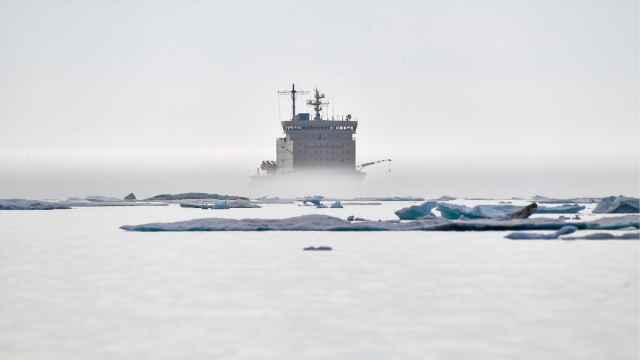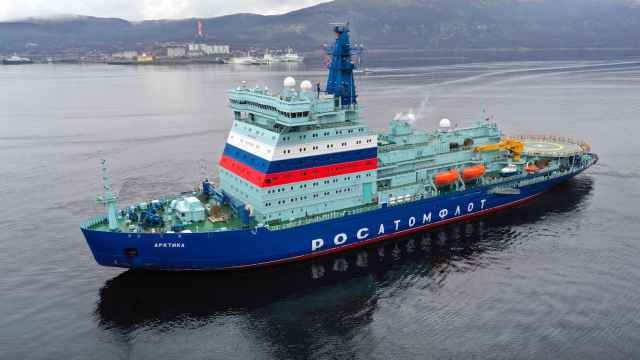Russian Foreign Minister Sergei Lavrov on Monday warned Western countries against staking claims in the Arctic, as global warming makes the region more accessible and a site of global competition.
Lavrov's comments came ahead of a ministerial meeting of the Arctic Council that comprises Russia, the United States, Canada, Norway, Denmark, Sweden, Finland and Iceland on Wednesday and Thursday in Rejkavik.
"It has been absolutely clear for everyone for a long time that this is our territory, this is our land," Lavrov said at a press conference in Moscow.
"We are responsible for ensuring our Arctic coast is safe," he said.
As climate change makes the Arctic more accessible, global interest in the region's natural resources, its navigation routes and its strategic position has grown among members of the Arctic Council as well as China.
In a speech last month, U.S. Secretary of State Antony Blinken warned that Russia "is exploiting this change to try to exert control over new space," including through modernizing bases, and also pointed to a growing presence of China.
On Monday he welcomed Denmark's plans to boost its military presence in Greenland and the North Atlantic with $245 million worth of investments into surveillance drones and a radar station on the Faroe Islands.
President Vladimir Putin in recent years has made Russia's Arctic region a strategic priority and ordered investment in military infrastructure and mineral extraction, exacerbating tensions with Arctic Council members.
The United States, for its part, has pushed back against what it considers Russian and Chinese "aggressivity" in the region.
In 2018, the U.S. Navy deployed an aircraft carrier in the Norwegian Sea for the first time since the 1980s.
And in February, Washington sent strategic bombers to train in Norway as part of Western efforts to bolster its military presence in the region.
Lavrov on Monday said he was emphasizing "once again — this is our land and our waters."
Growing military presence
"When NATO tries to justify its advance into the Arctic, this is probably a slightly different situation and here we have questions for our neighbors like Norway who are trying to justify the need for NATO to come into the Arctic," he said.
The Russian foreign minister said "we will talk about this frankly" at the eight-country ministerial meeting, and suggested resuming a regular dialogue between military chiefs of member countries.
"It would be perfectly logical to re-establish these relations between military officials who understand each other better than politicians," said Russian political analyst Fyodor Lukyanov, editor-in-chief of the journal Russia in Global Affairs.
"Even if this measure would confirm a return to the Cold War, it would still be a step forward in this situation," he told AFP.
The Council is expected to issue a final communique and a common strategic plan for the next decade at the end of the meeting.
As ice cover in the Arctic decreases, Russia is hoping to make use of the Northern Sea Route shipping channel to export oil and gas to overseas markets.
Russia has invested heavily to develop the route, which allows ships to cut the journey to Asian ports by 15 days compared with using the traditional Suez Canal route.
In August 2017, the first vessel traveled along the Northern Sea Route without the use of ice breakers.
Moscow has also beefed up its military presence in the region, reopening and modernizing several bases and airfields abandoned since the end of the Soviet era and deploying its state-of-the-art S-400 air defense systems.
In March, Russia launched massive Arctic maneuvers, with Putin praising the exercises and a retired admiral saying they were to send a "signal to our foreign friends — the Americans."
In Rejkavik this week, Lavrov will also meet with his U.S. counterpart Blinken in a test of Moscow's strained relationship with Washington.
Despite mounting tensions, Russia and the United States during climate negotiations earlier this year noted the Arctic as an area of cooperation.
A Message from The Moscow Times:
Dear readers,
We are facing unprecedented challenges. Russia's Prosecutor General's Office has designated The Moscow Times as an "undesirable" organization, criminalizing our work and putting our staff at risk of prosecution. This follows our earlier unjust labeling as a "foreign agent."
These actions are direct attempts to silence independent journalism in Russia. The authorities claim our work "discredits the decisions of the Russian leadership." We see things differently: we strive to provide accurate, unbiased reporting on Russia.
We, the journalists of The Moscow Times, refuse to be silenced. But to continue our work, we need your help.
Your support, no matter how small, makes a world of difference. If you can, please support us monthly starting from just $2. It's quick to set up, and every contribution makes a significant impact.
By supporting The Moscow Times, you're defending open, independent journalism in the face of repression. Thank you for standing with us.
Remind me later.


